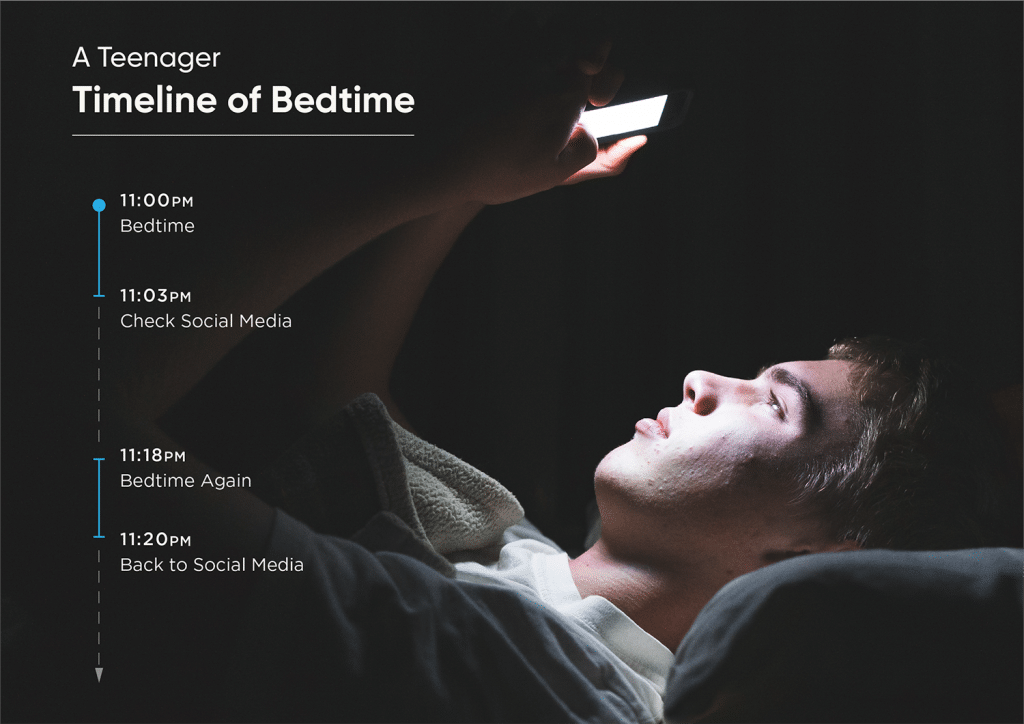With a smartphone in hand, your teenager has access to unlimited resources and seemingly the potential for robust social interaction. In reality, teens say that they regularly check their social media accounts every day, but most of the communication they share does not result in a feeling of connection.
As teens digest the posts of friends and wait for reactions to their broadcasts, they often experience increased feelings of social isolation. The cost of this compulsion is high. In addition to failing to provide deep and healthy friendships, checking in creates a perception that the user is alone and void of relationships with friends and family. Social isolation carries significant risk factors that, if ignored, can lead to serious health risks.

What the Research Says
Risks of Social Isolation
Researchers from the University of Pittsburgh School of Medicine determined that heavy social media use (SMU) increases feelings of perceived social isolation. When SMU displaces organic social experiences, teens may grapple with feelings of exclusion as they view evidence of their peers having connected face-to-face.
Social isolation [is] a state in which an individual lacks a sense of social belonging, true engagement with others, and fulfilling relationships.
—Brian A. Primack, MD, PhD, Associate Professor of Medicine, Pediatrics, and Clinical and Translational Science at the University of Pittsburgh School of Medicine
Counterintuitively, users “lack a sense of social belonging, true engagement with others, and fulfilling relationships” (Primak, 2017). Imagine feeling that you are making a determined effort to see others and be seen, but never feeling the bond from genuine interaction. There is no viable substitute that can afford teens the same benefit.
The negative outcomes associated with social isolation include both mental and physical detriments at levels typically associated with morbid obesity (Primak, 2017). The onslaught of symptoms includes dramatic and unnatural increases in cortisol that “disrupt sleep, immune function, and cognition” (Primak, 2017). This study also showed an impact at the cellular level in terms of gene expression and the subsequent impact on both mental and vascular health. These doctors issue a grave warning, “It is not surprising that social isolation can substantially increase the risk for all-cause mortality” (Primak, 2017). As SMU is the driver for real and perceived social isolation, a call for direct intervention is essential.
Impact of the Pandemic
Furthermore, evidence suggests that the emergence of COVID 19 has exacerbated this problem. With drastically fewer opportunities to mingle, even youngsters who did not engage in prolific SMU before the pandemic may now be at risk for smartphone addiction.

Researchers evaluated self-reported data from 184 Italian teens. They found that at the start of the pandemic, 25% were at risk for addiction. By January of 2020, just 11 months later, that percentage nearly doubled to 46% (Serra, 2021). Living in a pandemic has also negatively affected how early in the morning devices are accessed and smartphone use after midnight.
Studies show that more children were accessing their phones within five minutes of waking up. Over half began accessing their screens after midnight, compared to one-third before the pandemic (Serra, 2021). From this, we can assume that similar patterns have emerged at home and that social media use has increased, along with its attendant risks.
How did researchers determine if these young people spent an unhealthy amount of time using social media? To measure addiction risk, the pediatricians conducting this study asked respondents to assess the degree to which they experienced the following ten scenarios (Serra, 2021, p.4). Parents who are concerned about their child’s addiction risk might find it helpful to consider how much they have observed these behaviors in their child.
Questions that reveal problematic smartphone use:
- I have missed work due to smartphone use.
- I have difficulty concentrating in class, doing assignments, or working due to smartphone use.
- While using my smartphone, I feel pain in my wrists or neck.
- I will not be able to stand in line without having a smartphone.
- When I don’t have my phone, I get anxious and impatient.
- I have my smartphone in my mind even when I am not using it.
- I will never give up using my smartphone, even when my daily life is already greatly affected by it.
- My smartphone is always on, so I won’t miss conversations between other people on WhatsApp, Facebook, and Instagram.
- I often use my smartphone longer than I had intended.
- The people around me tell me that I use my smartphone too much.
Adverse Effects of Heavy Smartphone Use
The effects of smartphone addiction on this group included a wide range of problematic manifestations in the children determined to be at high risk for addiction. Negative outcomes were apparent in both mental and physical health and in behaviors associated with well-adjusted, content adolescents. Compared to the pre-pandemic period, trends emerged, including “[a] superficial approach to learning, [increased] distraction, loss of interest, [feelings of] isolation, sleep disturbances, changes in vision, and musculoskeletal disorders” (Serra, 2021).
Real-life Risks
—Dr. Gregorio Serra, Assistant Professor of Maternal and Infant Internal Specialized Medicine, Università degli Studi di Palermo
- Superficial approach to learning
- increased distraction
- loss of interest
- feelings of isolation
- sleep disturbances
- changes in vision
- musculoskeletal disorders
Moving Forward
Below are some suggestions that can help you determine if your child is experiencing social isolation and how you can help them connect in authentic ways:
- Use the researcher’s questionnaire to assess your teen’s behavior surrounding phone use.
- Utilize parental controls to observe your child’s phone use. Do you see any patterns emerging, such as increased time spent on social media or problematic nighttime use?
- Talk about it. Let your child know that you want to check-in and discuss what you’ve noticed.
- Together, set goals and add limits.
Conversation Starters
▢ You know, I’ve noticed that I’m spending more time on my phone than I usually do. Have you noticed that, too? Let’s make a plan and set some goals together. Why don’t we reward ourselves with ice cream after checking out the guitar store you’ve wanted to see?
▢ Guess what? Your cousins are headed to Hawaii for Fall Break. I’m excited for them, but it made me sad that I found out about it on Facebook. Does that ever happen to you? Do you know what I say to myself? “Not everything is about me, and I can be happy for them.”
▢ I’ve noticed you’ve been spending more time on Instagram than usual. Catch me up on what you’ve seen. How does it make you feel?

